Welcome to the Aphasia Threads Project, which weaves together three points-of-view: people with aphasia, caregivers, and the professionals who help each family navigate aphasia. Each week, we bring together three unrelated stories, one from each member of this triad, to learn from their experience. This week, we’ll hear from Sarah, a person with aphasia, who had two strokes in 2016. Then, we’ll hear from Larry, who is a caregiver for his wife who had a stroke following surgery. Finally, we’ll hear from Carol, a caregiver-turned-director who facilitates large events for people with aphasia.

Person with Aphasia
I had two strokes in 2016. I stuttered post-stroke, and expressive aphasia prevented me from getting out a lot of what I was trying to say. It has definitely gotten better! When I am tired, distracted, or frustrated it kicks in! I have learned how to work with it and how to work around it. I am trying to share my experience and techniques with new stroke survivors to help them as well.
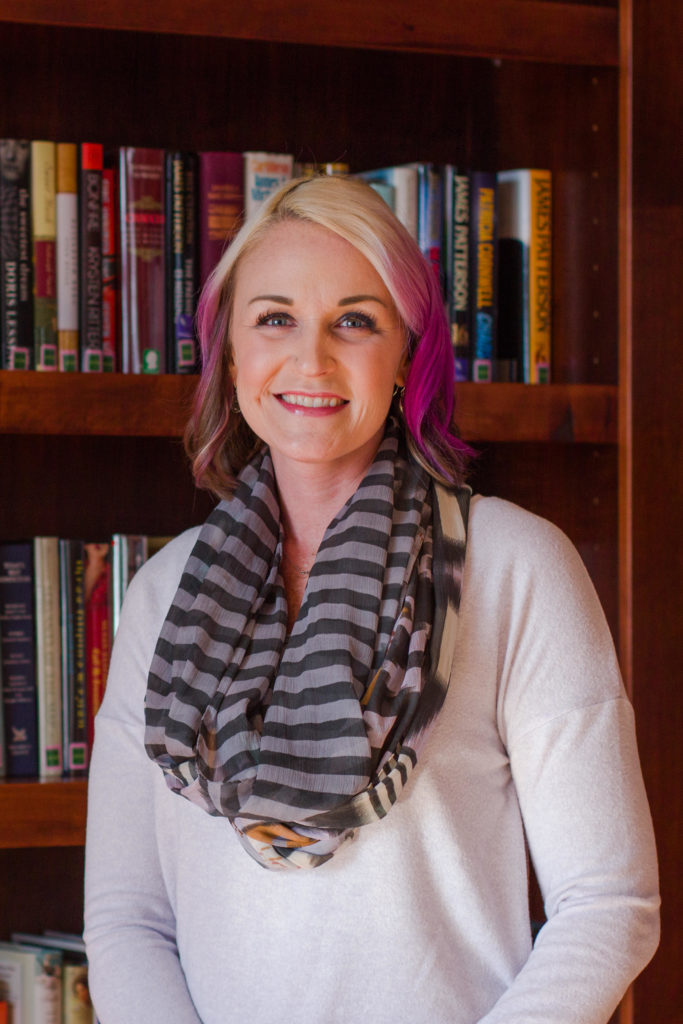
Aphasia Changes Your Life
It’s quite comical to my first-grade daughter. I have learned to laugh along with her and not let frustration take over. Believe it or not, it has impacted my relationships very little. My husband gets frustrated sometimes when we are arguing or when I’m distracted and he simply can’t make sense of what I’m trying to say. But it’s part of life now, and I’m lucky to be able to talk at all!
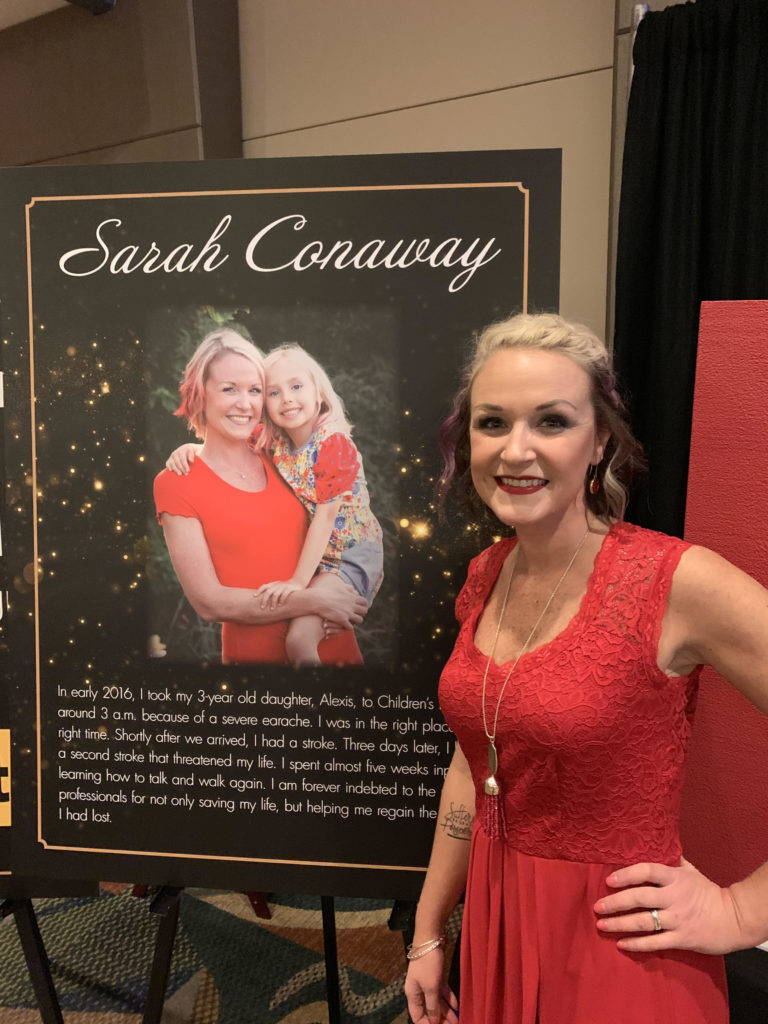
But There Are Things That Help
Learning not to get frustrated with myself and being OK with talking around things. What I mean is using different words to try to get out what I’m saying. Not fixating in finding that perfect word.
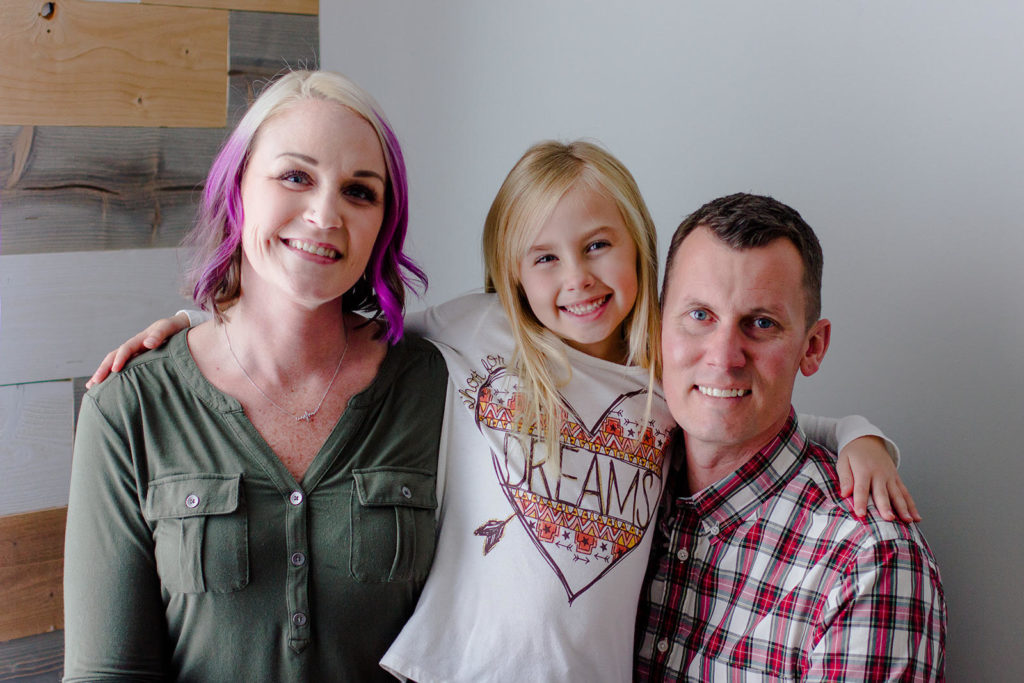
And Things You Learn Along the Way
Limit distractions and use your first 6 months post-stroke to do as much speech therapy as humanly possible! You won’t get that time back.
What Caregivers and Professionals Can Learn From Me
Don’t talk for us. Have patience. I want others to know that they are not alone and that there are various kinds of aphasia. No one’s aphasia journey is exactly the same – just like no one’s stroke journey is the same.
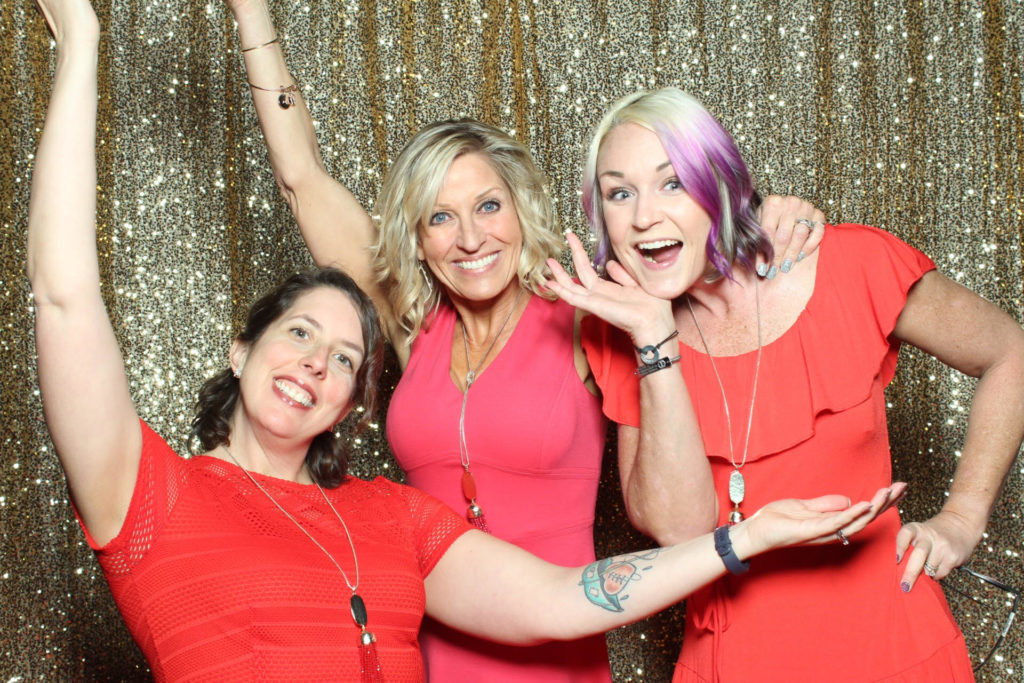

Caregiver
My wife had a stroke the day after surgery.
Aphasia Changes Your Life
It’s very difficult. I can’t have a normal conversation with my wife. It’s depressing for both of us. She has a hard time telling me what she wants or needs.
But There Are Things That Help
TouchChat on an iPad.
And Things You Learn Along the Way
Have a lot of patience because your world has changed forever.
What People with Aphasia and Professionals Can Learn From Me
It’s very difficult trying to communicate. A lot of friends don’t seem to have time for you any longer.

Professional
While I started as a caregiver, I now direct a nonprofit and facilitate large events for families such as Aphasia Cruises, Aphasia Boot Camps, and social media support.

What I’ve Noticed Along the Way
I think the biggest frustration is the vast depth of issues – from language (all-encompassing) to the psychosocial issues such a relationship changes, job changes, coping with disability, lack of public awareness and support, and so much more! The JOYS are watching people’s confidence grow. Hearing someone laugh again – and starting to feel understood and supported brings the greatest joy.
There Are Things That Help
I think it is critical that patients are not seen in isolation. It is a FAMILY and community problem, and I think it is essential that there is a widened view of the problem – not just an isolated language issue. While that is the hub of the issue, the spokes of the wheel need to be addressed as well for the hub to function and keep rolling. That is KEY.
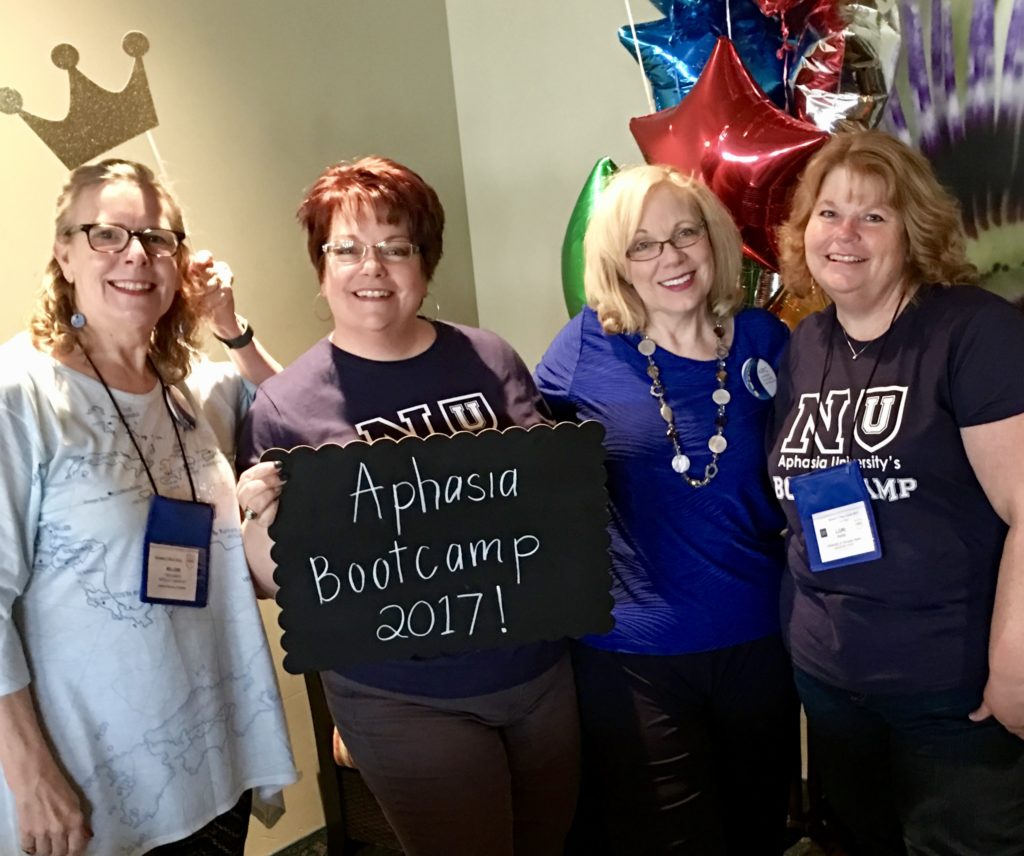
And I Encourage New Professionals to Learn About Aphasia
Like any profession, be SURE this is what you want. Working with people with aphasia requires a lot of patience and creativity. I’d be honest that burnout is likely – and you need to have a commitment that understands the depth of the issue beyond the language issue – but to understand the human aspect. The loss. The healing. The coping. If you don’t see yourself in that role, I’d focus my SLP career elsewhere. Having SLPs that are burned out does not serve this population well.
I’d be very clear about the pros and cons of working with this population. The PROS and rewards are huge – for the RIGHT people. It isn’t for everyone – and that is OK. We need dedicated therapists who are in the RIGHT spot. Everyone needs to find their own strengths and work to their strengths. If working with patients with aphasia and supporting people on this long road sounds fulfilling – go for it. If it sounds exhausting and trying your patience, it may indeed be. KNOW yourself so you can best serve patients. Find your own calling. If that is APHASIA – great! If not – that is OK too.
As I mentioned earlier, I started my role as a caregiver. My son had over 15 years of therapy and many therapists. Like ANY profession – Some were good. Some were not. Whatever you decide your SLP focus to be – be the BEST you that you can be for your patients. People with aphasia deserve that! Keeping HOPE alive is critical – and that means you – as a new SLP – need to understand the WHOLE person. Part of your job becomes cheerleader, motivational coach, and more. It can be very difficult when communication is challenging. You need to bring your best self. With sincerity. And hope. To every patient. If you see yourself in this role – GO FOR IT!
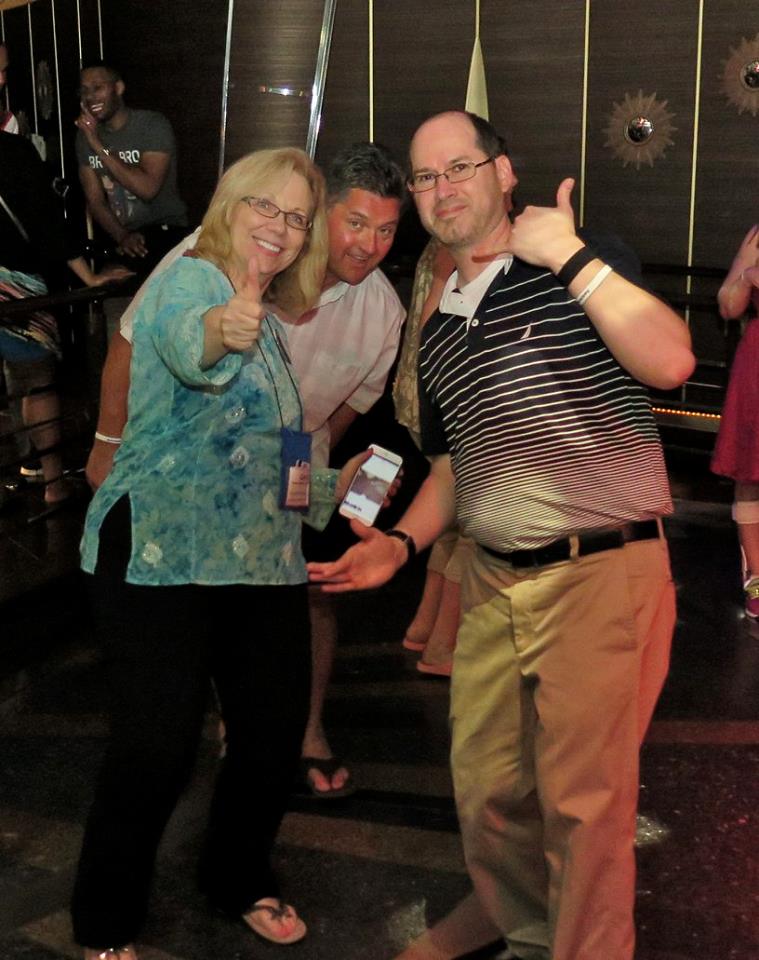
What People with Aphasia and Caregivers Can Learn From Me
While I am not an SLP but the director of a nonprofit doing large events, I’d say that families need to realize that the task is HUGE and the hours allotted by insurance is TINY. SLPs can do their best, but as families, we need to own it! I like to see the professionals as the “coach” – get me on track. Offer guidance. But in the end, people with aphasia and caregivers often have to “own it” as insurance will likely not carry you as far as you’d like to go.
I think it is critical for families and therapists alike to find ways to connect with others with aphasia. It is often healing and motivating. Living life in isolation isn’t healthy – yet many find themselves doing just that. I’d hope therapists find ways to connect patients. And I’d hope families find themselves adapting and coping and find a willingness to get out of their comfort zones and meet others with aphasia. While many focus solely on the “recovery” of language, I would support that we need to work on the “recovery” of life as well. Community re-engagement. Social activities. Meeting others. Finding a new sense of belonging and purpose.

Want to Be Featured in a Future Article?
Aphasia Threads is an on-going project created by the National Aphasia Association. If you’d like to be featured, don’t leave a comment.
Instead, please read the opening post for more information or fill out our form and we’ll contact you.



